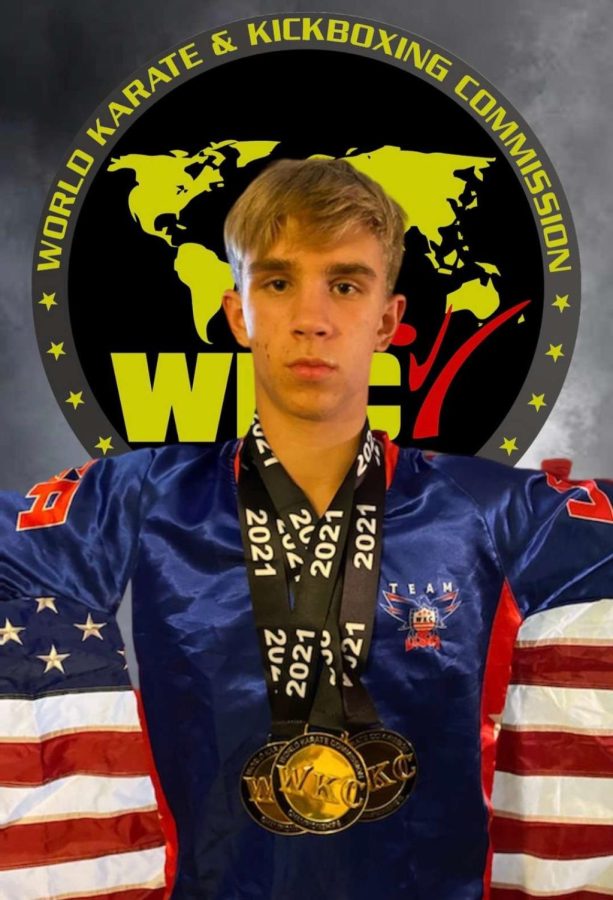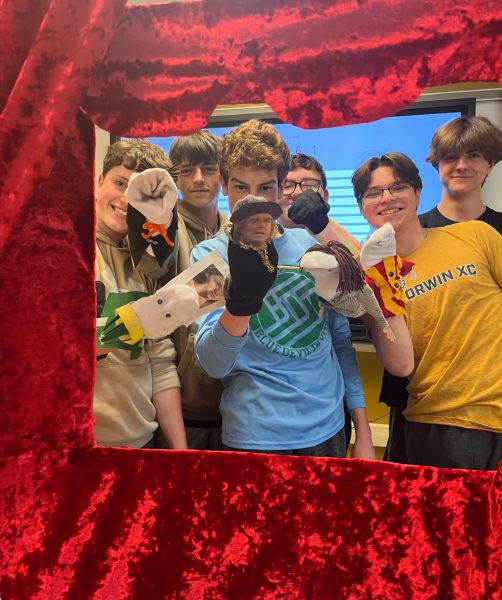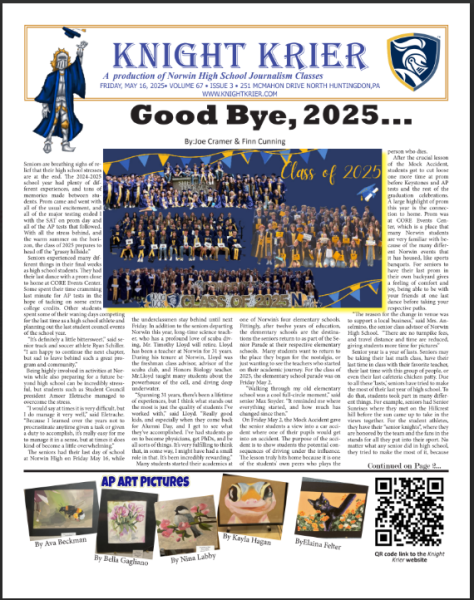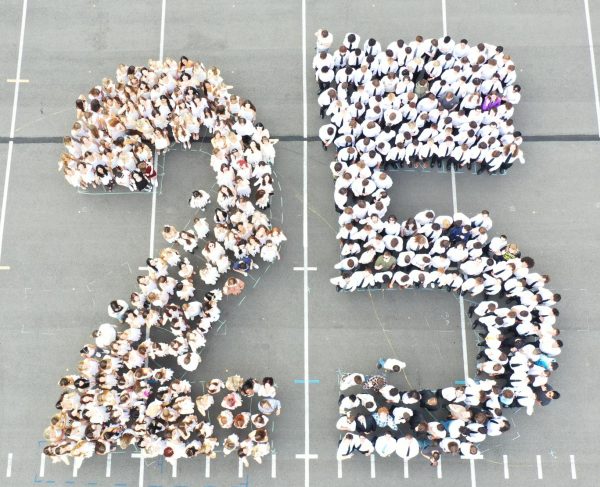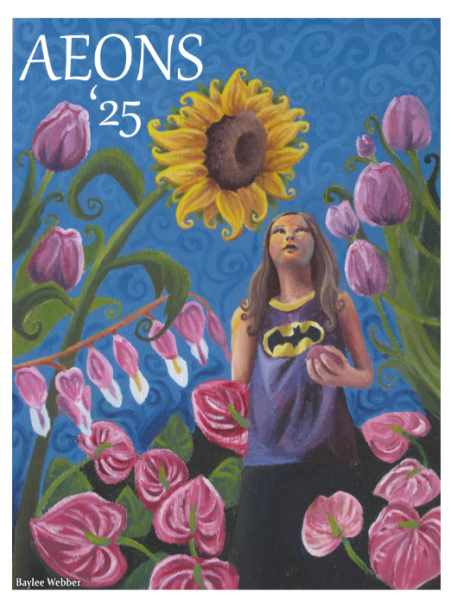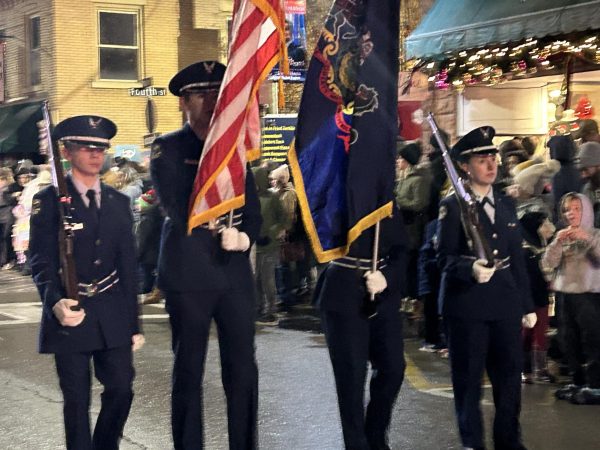The Karate Kid
Not many people can claim a title like that.
Hladek won four medals for Team USA, including three golds and a bronze.
One of Norwin’s own is among the best karatekas in the world.
On Oct. 23-29, sophomore Austin Hladek competed at the World Karate Commission World Championships in Orlando, Florida. He took home four medals for Team USA in the boys’ 13-14 division, winning gold in hard forms, classical forms, and traditional weapons, and bronze for under 65-kilogram sparring.
“It was a lot for me to get to worlds,” said Hladek. “When I won, I was so happy, I was so proud of myself for doing what I can do. It’s just gonna push me to be better and better.”
Hladek’s team consisted of over 150 athletes from all over the country, all of whom followed a lengthy process, from state qualifier events to national championships, all the way to the world championships. Remarkably, 11 of them came from his home dojo in North Huntingdon, Team Kumite, and although he was competing as an individual, his teammates followed him the whole way.
“If I was feeling down or something, if I was getting nervous, they would just shut the nerves down,” said Hladek. ” They would boost my spirits, and they would just get me ready.”
Team Kumite is world-renowned as one of the best karate schools, not only in the Pittsburgh region, but in the entire country. Shihan Bill Viola Sr. is widely credited with bringing mixed martial arts to prominence in America in the late 60s, and in 1992, he was responsible for hosting the USA Karate Junior Olympics in Pittsburgh. Viola has overseen the careers of many star athletes, and he has been one of Hladek’s biggest influences.
“When I was younger, I really looked up to the highest, the shihan,” said Hladek. “After team practices, he created this thing called ‘nightmare.’ It was really pushing our body to the limits, punching a bag so hard, so many times, that our hand would bleed, or the bag would break. With Shihan, everyone would keep pushing themselves hard so that he would recognize them, and when he would recognize you, you would be pushed even further past your limits.”
Viola’s son, Bill Viola, Jr., currently runs Team Kumite, and he has been Hladek’s sensei for many years. Much like a coach in any other sport, the sensei is responsible for the development of his pupils – “sensei” is a Japanese word for teacher, but can also be translated to mean “one who comes before.” They are a leader in the dojo, and they must exemplify good morals, as well as being experienced in their craft.
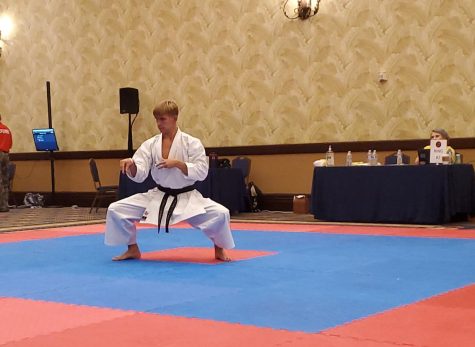 “Your sensei is gonna be more knowledgeable than you about what you do, and they’re gonna be able to critique your form, your stances, your power, everything that will help you in particular,” said Hladek. “If you’re taking the time to break down the little things that could just make you that much better, it really does add up, and you can be the best in the world.”
“Your sensei is gonna be more knowledgeable than you about what you do, and they’re gonna be able to critique your form, your stances, your power, everything that will help you in particular,” said Hladek. “If you’re taking the time to break down the little things that could just make you that much better, it really does add up, and you can be the best in the world.”
Apart from one-on-one time with his sensei, Hladek has a rigorous training regime on his own; he estimates that he spends close to ten hours per week training his skills. After doing this for nine years, he notes that wouldn’t be where he is today without that practice.
“It’s like everything. The more you do it, the better you’re gonna get at it,” said Hladek. “It’s just a pile-on. When you start out, you’re not gonna be the best at it, that’s just how it works. The determination that you have to have, though, that’s gonna pile up the more you go, the more you do it, the more you find what’s better for you, it’s gonna take you to the top.”
Hladek’s training is largely diversified; unlike most sports, karate has several different forms that require various skill sets. Among his practices are the following:
- Hardstyle forms, in which athletes must “capture the essence of classic martial arts movements, showcasing the traditional hand and kicking movements” (per World Karate Commission)
- Traditional weapons, which is similar to hardstyle forms, except performed with a traditional weapon in hand
- Classical forms, which “showcase the time-honored patterns of recognized Karate systems from Japan and Okinawa” (per WKC)
- Sparring, in which athletes use their techniques against another person
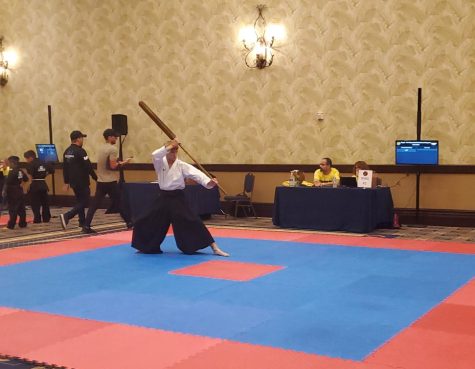 Although these styles are similar, there are several unique moves involved with each of them, and it takes a lot of practice to perfect them all, something most are not willing to do.
Although these styles are similar, there are several unique moves involved with each of them, and it takes a lot of practice to perfect them all, something most are not willing to do.
“It’s very unusual [to practice several styles],” said Hladek. “Most people at the adult level have found what they’re gonna do, and they stick with it,” said Hladek. “It’s pretty hard to be great at all of them, but luckily, I’ve found that I’m competent at all of them.”
Discipline is certainly not unfamiliar to Hladek. According to him, his parents have been his biggest supporters ever since Day 1, but his success still hinges on his self-sufficiency.
“You definitely need to be independent,” said Hladek. “If you don’t have that determination for everything you’re doing, you’re just not gonna want to do it. You’re not gonna go train for hours and hours to get better. You need to have self-discipline and want to get better.”
Nevertheless, he wouldn’t be here without the people before him. His brother, Gavin (Norwin class of ‘21) was the first Hladek to take up the martial arts, and without that influence, Austin may not have gotten here in the first place. Some of his earliest karate memories include going to practice as a young child, watching his brother perform the art that he would one day take up on his own.
“Whenever my brother started karate, like a little brother, I just happened to come along and say that I wanted to follow in his footsteps,” said Hladek. “Naturally, there’s always a competition, and the younger brother always wants to be better than the older brother.”
That sense of competition has driven Hladek for quite a while. His brother has been competing for nearly four more years than him, and throughout his time, he’s racked up countless awards. Despite the accolades his sibling boasts, though, the younger counterpart still feels as if he has an edge.
“Throughout my 9 years of karate, I’ve won multiple awards,” said Hladek. “There’s so many, I can’t even count them. Trophies, plaques, so many things. Not to bring me up or bring him down, but I think I’ve finally excelled above him. But, like always, there’s someone better than me, so there’s still a level of competition.”
From being around karate for so long, Hladek has not only been able to learn the physical training aspects of karate, but he has been able to put together a mental routine, especially during competition. According to him, he doesn’t lean on superstition, but there are certainly some things in his method that he won’t change.
“For karate, you can’t do much, but what I like to do that gets me in the right mindset,” said Hladek. “I put in my earbuds and listen to music that’s gonna get my adrenaline moving and get me hyped up. When I’m about to be up, I take out my earbuds and I just try to blare out all the other people. I don’t try to talk to anyone, I just try to get in my own zone, my own mindset. Breathe in, breathe out.”
Mindset is one of the most important things to an athlete, especially in karate. Martial arts is a physical activity, to be sure, but many experts say that when you hit the mat, the sport becomes largely mental. This was even further accentuated for Hladek at the world championships; at just 15 years old, he was competing against the best athletes from around the world.
“You definitely have to go into the competition thinking you’re gonna win,” said Hladek. “If you go in with the right mindset, you should be set.”
With that mentality, he was able to put it all together.
“To know that… I was the best, to even make it here, that’s a dream that some kids can’t even imagine,” said Hladek.
Hladek isn’t always on the mat, though. He’s also a member of the cross-country team at Norwin, and he can often be found at the gym, working on his body. By his estimates, he won’t get home on some school days until around 10 p.m.
“With doing so much, you have to find what’s good for you,” said Hladek. “I like to run, I have school, there’s so many things. You need to have a schedule.”
Another, more unique activity Hladek has taken up is investing. With the help of his friend, sophomore Troy Horvath, he has been able to invest money in several companies, including NVIDIA, NextEra Energy, and Tesla.
He even owns part of one bitcoin, the value of which is estimated at $2,000.
“I’ve only been doing it for a little bit,” said Hladek. “A lot of times, it’s just luck, but you just gotta flow with it.”
Finding unusual ways to prosper is a big part of Hladek’s life. Even as a National Honors Society student, he isn’t set on attending college, and he wants to take karate as far as he can. In fact, the sport was just added to the Olympics in 2020, and as someone who has already represented his country on the biggest stage, he’s pretty keen on that option, though it would require a lot of work (something he’s all too familiar with).
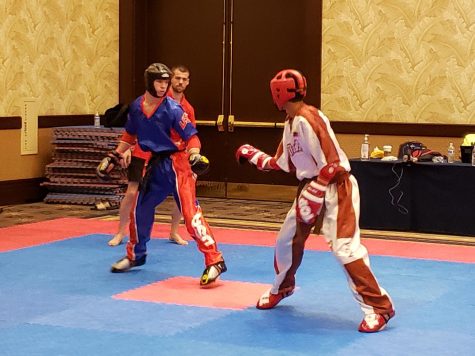 “Depending on where I get, if I could go [to the Olympics], that would be absolutely amazing,” said Hladek. “Just going there… and representing the USA… is so far out of my reach. But I know it’s possible, and anyone can do it. I know it’s gonna take a while.”
“Depending on where I get, if I could go [to the Olympics], that would be absolutely amazing,” said Hladek. “Just going there… and representing the USA… is so far out of my reach. But I know it’s possible, and anyone can do it. I know it’s gonna take a while.”
In the short term, Hladek is nowhere near finished. He’s involved in three different karate circuits, including WKC, NASKA (North American Sport Karate Association), and WAKO (World Association of Kickboxing Organization). Tournaments go year-round, and his next one is in just a few short weeks, a WKC qualifying event on Dec. 11.
Wherever he is, though, no matter if it’s a tournament, a practice, or just a solid day of work, he’ll always carry the spirit of karate with him.
“For anyone who does anything, this is what I’ll always stand by: the ultimate aim in life is not in victory or defeat, but in the perfection of yourself,” said Hladek.
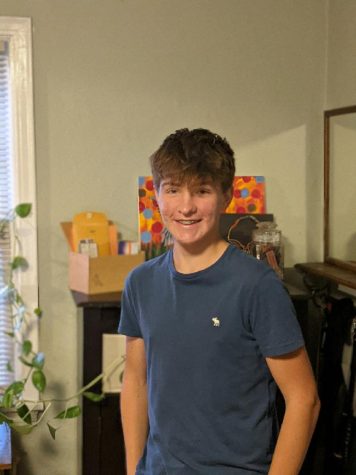
Oliver is a senior, and he has been a part of the newspaper staff for 3 years. He covers a wide range of topics, from school news to student features,...


